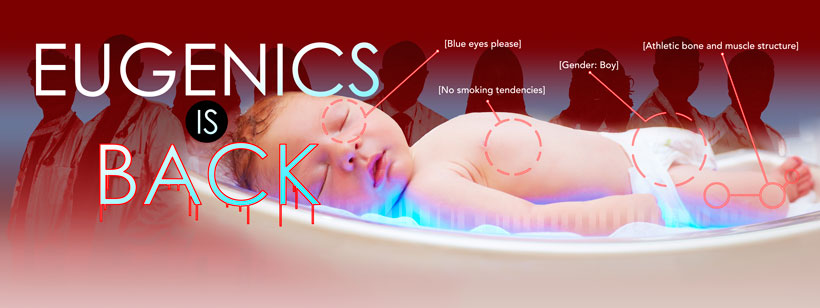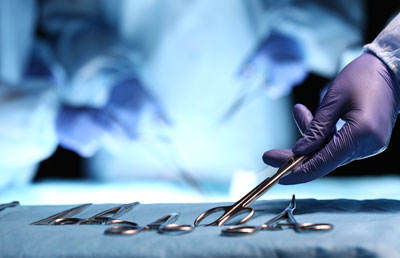
In the 1880s, Charles Darwin’s cousin, Sir Francis Galton, gave the world a new word and a new quest, namely ‘eugenics’, meaning ‘well-born’ (from Greek εὖ eu, ‘well’ and γένος genos, ‘offspring’).1 This is the concept of improving the human race by encouraging those individuals deemed ‘fit’ to reproduce, while discouraging/preventing those deemed ‘unfit’ from doing so. Darwin heartily approved and wrote: “ … if the prudent avoid marriage, whilst the reckless marry, the inferior members will tend to supplant the better members of society”.2
This ‘better babies’ concept was seen as a great idea by the politicians of the day, who passed laws for the enforced sterilization and segregation of those they deemed to be unfit. Thus, in the early 20th century, eugenics flourished in the UK, in most European countries, and also in the USA, where over 60,000 citizens were forcibly sterilized.3 That is, until after WW2, when it was established how Hitler’s master race ideology had used the idea. The Nazis forcibly sterilized some 400,000 mentally and physically handicapped persons, then progressed to the ‘mercy killing’ of almost another 300,000 citizens, and finally proceeded to the genocide of millions of Jews and other non-Aryan ‘unsuitables’.
Consequently, after WW2, the term ‘eugenics’ was avoided; however, the concept is still alive and well. In April 2016, the British weekly magazine The Spectator published an article titled: “The return of eugenics: Researchers don’t like the word—but they’re running ahead with the idea, and Britain is at the forefront.”4 In it, author Fraser Nelson points out that in Britain today, using IVF technology, “£12,000 buys you the chance to choose which embryo to implant. And £400 buys sperm-sorting, the better to conceive a boy (or a girl).” And, “Developments in IVF mean that, today, several embryos can be fertilised and screened for disease, with the winner implanted in the uterus.”
Consent to use human embryos

In January 2016, a new biomedical research centre called the Francis Crick Institute was opened in London to begin a gene-editing technique known as CRISPR-Cas9.5,6
A group there, led by Dr Kathy Niakan, “was granted consent by the United Kingdom’s Human Fertilisation and Embryology Authority (HFEA) to undertake gene editing using human embryos.”7The program is allowed to target specific sections of DNA, delete them, and insert new genetic sequences, in a biological cut-and-paste that rewrites the genetic code.
This is not in itself an ethical problem, as it can be used legitimately without violating biblical morality, e.g. where a mutated gene is restored to its previous healthy condition. This, like the repair of a cleft palate, is a temporary alleviation of the effects of the Curse—as occurred in Christ’s healing ministry. However, “Dr Niakan’s team are working with donated embryos left over from IVF treatment, which cannot be used after 14 days and are prohibited from ever being implanted in a woman.”7,8
Problems
Proponents glibly claim: “There are no deaths, no sterilizations, no abortions: just a scientifically guided conception.”4 Incorrect! When a male sex cell successfully unites with a female sex cell, a new single-celled living organism is generated. This immediately starts to multiply and develop until finally a baby is born. It is thus alive from conception, and there is no rational, scientific or biblical reason to conclude other than that it is always a person—a genetically unique unborn person. And therefore it is not to be washed down the drain after 14 days of life in a petri dish any more than a 14-week-old infant or a 90-year-old invalid.
In God’s eyes, the unborn are already unique individuals, as attested by David in Psalm 139, where he writes of how God formed him in the womb, and says (v. 16): “Your eyes saw my unformed substance; in your book were written, every one of them, the days that were formed for me, when as yet there was none of them.”
Also, societal problems of this gene alteration include that parents may also want taller, smarter, better ‘designer’ babies. But surely if the wealthy are able to specify super-babies in this way, it will only widen the ‘opportunity gap’ between the rich and the poor.
Critics further warn that this manipulation of the genetic code could have unintended consequences that won’t be apparent until after the babies involved are born. And further into the future, the effects of such manipulation on future generations are totally unknown.
Fraser Nelson sums up the current situation well: “So some 130 years after Britain gave the world the idea of perfecting humanity, we are once again at the cutting edge of this troubled science. For good or ill, eugenics is back.”4

No comments:
Post a Comment